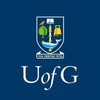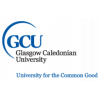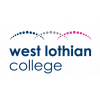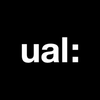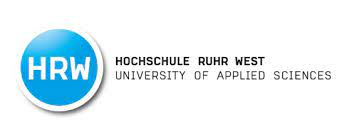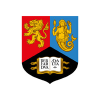Snabbfakta
-
- Glasgow
Ansök senast: 2024-08-27
Research Associate (Caveat)
Publicerad 2024-06-28
Job Purpose
To make a leading contribution to the AHRC-DCMS funded project CAVEAT - Triangulation of values using different valuation methods We are looking for an enthusiastic and committed researcher to join our team of experts. The selected candidate will work with CAVEAT Principal Investigator Prof Patrizia Riganti, who is leading a consortium involving the University of Stirling, Historic England, ICCROM, ICOMOS ISCEC, as well as scholars from Macquarie University, Burgundy Business School and IPSOS UK. CAVEAT is one of the six projects funded by the Arts and Humanities Research Council (AHRC) and DCMS as part of their £3.1 million investment in culture and heritage research. These coordinated projects aim to develop a multidisciplinary approach to valuing the benefits of culture and heritage assets to society and will contribute to the Department for Culture, Media and Sport’s (DCMS) Culture and Heritage Capital Programme The successful candidate will help manage and direct this pioneering, complex, highly innovative, and challenging project and will also be expected to contribute to the formulation and submission of research publications and related research proposals. A background in environmental economics and econometrics is essential and the application of non-market techniques to natural/cultural capital is a highly desirable requirement for this post. Main Duties and Responsibilities 1. Take a leading role in the planning and conduct of assigned research individually or jointly in accordance with the project deliverables and project research strategy.2. Document research outputs including analysis and interpretation of all data, maintaining records and databases, monitoring project’s progress, drafting technical/progress reports and papers as appropriate.3. Liaise with all partners of the project in preparation for meetings, workshops organization, surveys implementation and all related fieldwork/data collection.4. Survey the research literature and environment, understand the research challenges associated with the project & subject area, & develop/implement a suitable research strategy.5. Present work at international and national conferences, at internal and external seminars, colloquia, and workshops to develop and enhance our research profile and disseminate the project’s outputs/outcomes.6. Take a leading role in the identification of potential funding sources and to assist Prof Riganti in the development of proposals to secure funding from internal and external bodies to support future research.7. Take a leading role in developing and maintaining collaborations with colleagues across the research group/School/College/University and wider community (e.g. Academic and Industrial Partners).8. Disseminate the project’s achievements in meetings/seminars/workshops at School/College level.9. Perform administrative tasks related to the activities of the research project, including Budgets/Expenditure.10. Keep up to date with current knowledge and recent advances in the field of environmental economics, applied cultural economics and heritage studies.11. Engage in personal, professional and career development, to enhance both specialist and transferable skills in accordance with desired career trajectory.12. Undertake any other reasonable duties as required by Prof Riganti13. Contribute to the enhancement of the University’s international profile in line with the University’s Strategic Plan, Inspiring People Changing The World. Knowledge and Qualifications Essential A1 Normally Scottish Credit and Qualification Framework level 12 (PhD) or alternatively possess the equivalent in professional qualifications and experience, with experience of personal development in a similar or related role(s)A2 A degree in economics or econometricsA3 A comprehensive and up-to-date knowledge of current issues and future directions within environmental economics and non-market valuation techniques applied to natural and/or cultural capital.A4 Knowledge of stated and/or revealed preferences methods such as Discrete Choice Experiments, Contingent Valuation, Travel Costs Methods.A5 Knowledge of econometric modelling Desirable B1 Knowledge of environmental economics and ecological economics debate (ecosystem services valuation)B2 Knowledge of biases in the application of stated preferences methods (embedding, sequencing effects etc)B3 Knowledge of real-world experiments and/or hedonic pricing methods Skills Essential C1 Proven ability to deliver quality outputs in a timely and efficient mannerC2 Ability to demonstrate a degree of independence as illustrated by identification of project objectives from assessment of the literature, design & analysis of experiments & drafting of papers Desirable D1 A background in applied cultural economicsD2 Awareness of cultural values debate Experience Essential E1 Experience of advanced statistical data analysis and modellingE2 A track record of presentation and publication of research results in quality journals/conferencesE3 Experience of making a leading contribution in academic activitiesE4 Experience in undertaking independent researchE5 Commitment to open research, as appropriate to the discipline, through open data, open code, open educational resources and practices that support replicationE6 Proven commitment to supporting the career development of colleagues and/or to other forms of collegiality appropriate to the career stage Desirable: F1 Experience of design, implementation, and data analysis of discrete choice experiments and/or contingent valuation studies, travel costs, hedonic pricing, real world experiments This post will be based in the School of Social & Environmental Sustainability in Dumfries. We do, however, have flexibility in regards to where the postholder will be based and will be happy to discuss this in more detail at the interview.